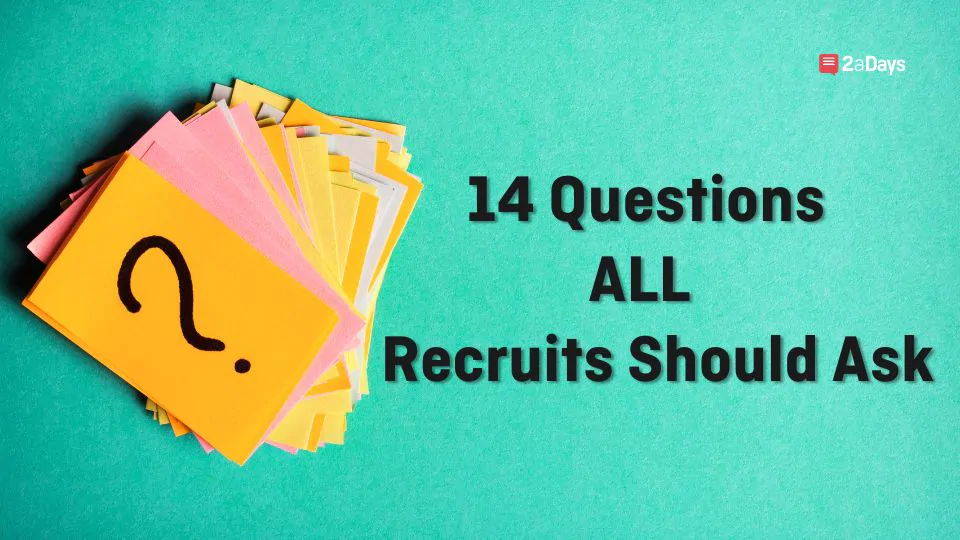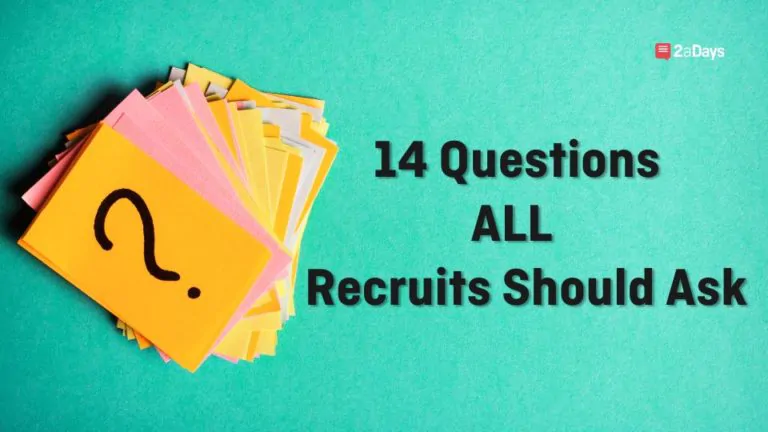The recruiting process is a complicated multi-year commitment that can be daunting at the start. When trying to figure out where to begin, asking questions can be a great way forward. Here are 14 questions every recruit should ask throughout the recruiting process:
Freshman Year:
How can I showcase my skills in front of college coaches?
First, of all, sending out emails to college coaches increases your chances of being recruited. And that's “emails,” plural. “I sent over one hundred emails my freshman year,” says former University of Texas-Dallas softball player, Amber Williams. So as you're reaching out to coaches, remember this is a long process.
Your email should include: your name, current G.P.A, select team and jersey number, email, phone number, and graduation year, at the top of the email. Following your personal information, you should include a summary of who you are, what position you play, and why you want to attend that institution and play for that coach. Also, if you have a skills video attach it to the bottom of the email. There are also a ton of showcase camps, designed to give players a chance to get recruited by numerous schools, all at one time. If you are aware of future camps you will be attending, it is a great idea to email a coach a list of the camps you will be attending.
Related: Rate your Coaches, Facilities, and Campus Visits
What are the academic requirements for me to get into this institution, and do they offer my major?
Without academics, there is a slim possibility of you playing at your dream school. You may be a top ten recruit on a scouting report, but if you're failing every class they won't care how good you are. Every institution has a certain G.P.A requirement, as well as an SAT and ACT minimum score. If these requirements are not met by the time you graduate, then you will not be accepted; therefore, you will not be able to play on any sports team. If help is needed, talk to your teachers, and counselors to receive extra help in a subject you are struggling in. It is also important for you to research the institutions offered majors. So if you want to major in chemical engineering, then you have to make sure that that school offers courses for that major.
Do I have a list of top 10 colleges, and have I done research on these institutions?
When going through the recruitment process, it is vital to narrow down colleges of your choice. Once narrowed down, you will be able to focus on specific schools and what they can offer you. When doing research, look into the school's academic requirements, as well as the team's roster, schedule, and previous records.
Am I having fun?
Remember that coaches want you just as much as you do them. So have fun! Remember that coaches are looking to add value to their team, so they want you to play for them just as much as you want to play for them. Your recruitment process should be fun and exciting, instead of stressful and tense.
Related: 11 Recruiting Tips From D3 Women's Volleyball Coach Tim Byram
Sophomore Year:
What showcase camps/tournaments will certain coaches be at?
When looking for a camp to attend, there is usually a list of college coaches who will be in attendance. If you do not see a specific coach on the list, it is okay to email them and ask if they are able to find a spot.
How can I stay in contact with coaches without breaking NCAA rules?
During your sophomore year, NCAA college coaches cannot talk to athletes over the phone nor text. Therefore, if there are coaches who are interested in you, keep in contact with them through email.
How do I set up an unofficial visit?
An athlete cannot set up an unofficial visit by him/herself. They are only able to do so by an invitation from a college coach.
What are the academic goals/requirements for the team?
Knowing the coach's academic goals for his/her team, can give you a good idea of how strict they are when it comes to academics. If the required overall G.P.A is a 3.0 for the entire team, you then know that you have a weight to pull as well to help your team reach that goal.
Related: Pro Tennis Player, Kristie Ahn, on Academics and the Recruiting Process
Is there a strong need for my position? Does this coach see me starting in this position?
You do not want to play at an institution where you will not start a game until your senior year. There have been numerous athletes who get an offer from a Division 1 school, and do not get an opportunity to play until their senior year. Because of this, it is important to ask coaches if there is a strong need for your position, and do they see you starting in that position. If your primary position is first base, and a coach says they want you to play shortstop for them, you might want to reconsider your options.
Junior Year:
What are the pros/cons of attending this institution?
Make a list of the pros/cons of attending an institution for athletics as well as academically. This will help you narrow down your offers and help choose a school that best fits your needs.
If I am having trouble with my academics and is there any tutoring or other support available for student athletes?
Since it is important for you to keep a certain GPA, it does not hurt to have a little academic guidance. Especially during the season while you are traveling for days or weeks at a time, and might miss a few classes. Tutors can help with assignments that you may have missed while away, as well as chapters that you may have missed also.
Am I ready to commit?
Make sure you have completed all of the above steps before deciding to commit. Committing to a school is a huge decision, and can be life changing! The school you choose to attend will be your life for the next four years, and will follow you for the rest of your life.
Senior Year:
Am I constantly updating the college coach about games, and grades?
Even after you commit to a school, you should still keep in contact with your new coach by emailing, calling, texting, or facetiming them. Coaches love to receive progress reports on your performance during high school or travel ball games. This will show them the type of player you will be once you begin playing for them.
What can I do now to prepare myself for college?
You can prepare yourself for college by graduating from high school, completing your dorm application, working out, and staying healthy.
Have an idea for a story or a question you need answered? Want to set up an interview with us? Email us at [email protected]
* Originally published on June 16, 2022, by Brianna Davis







